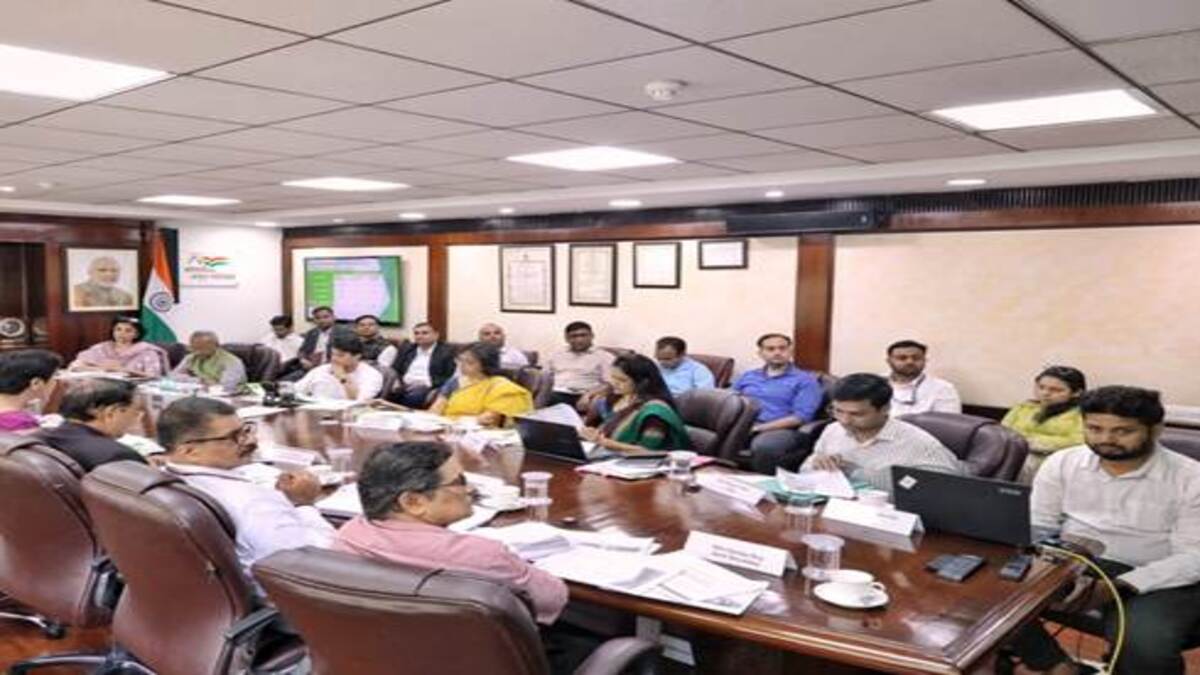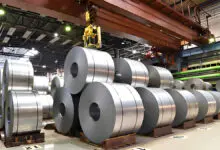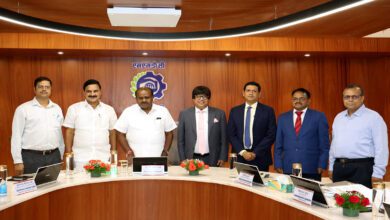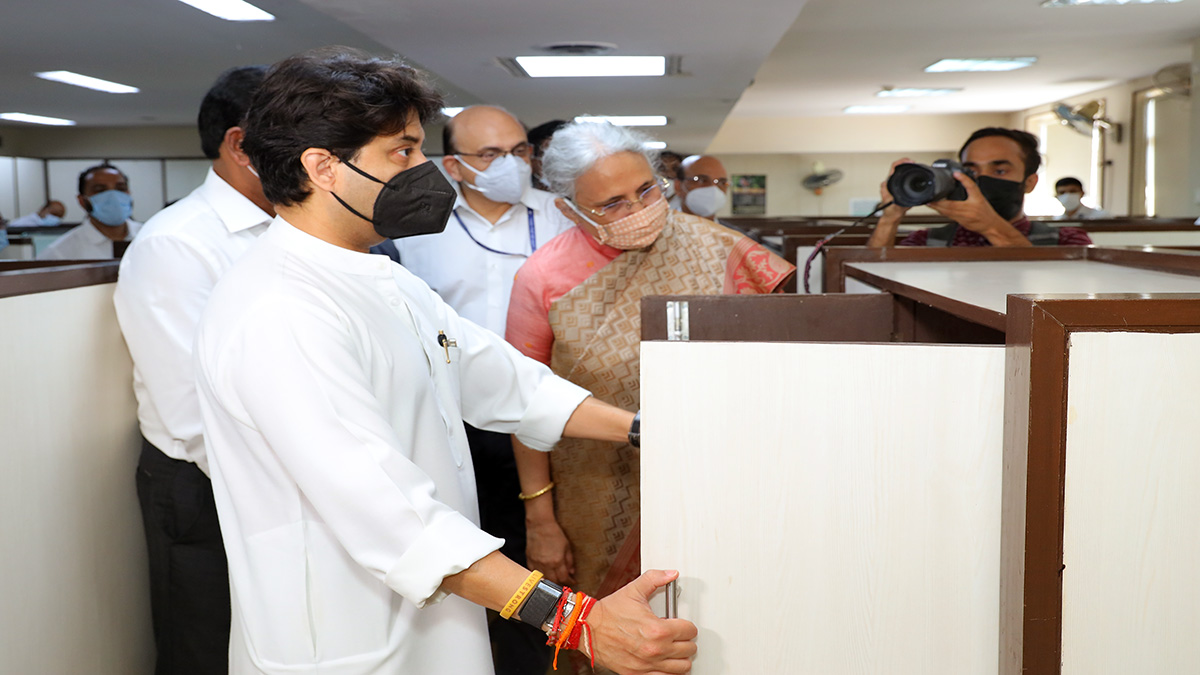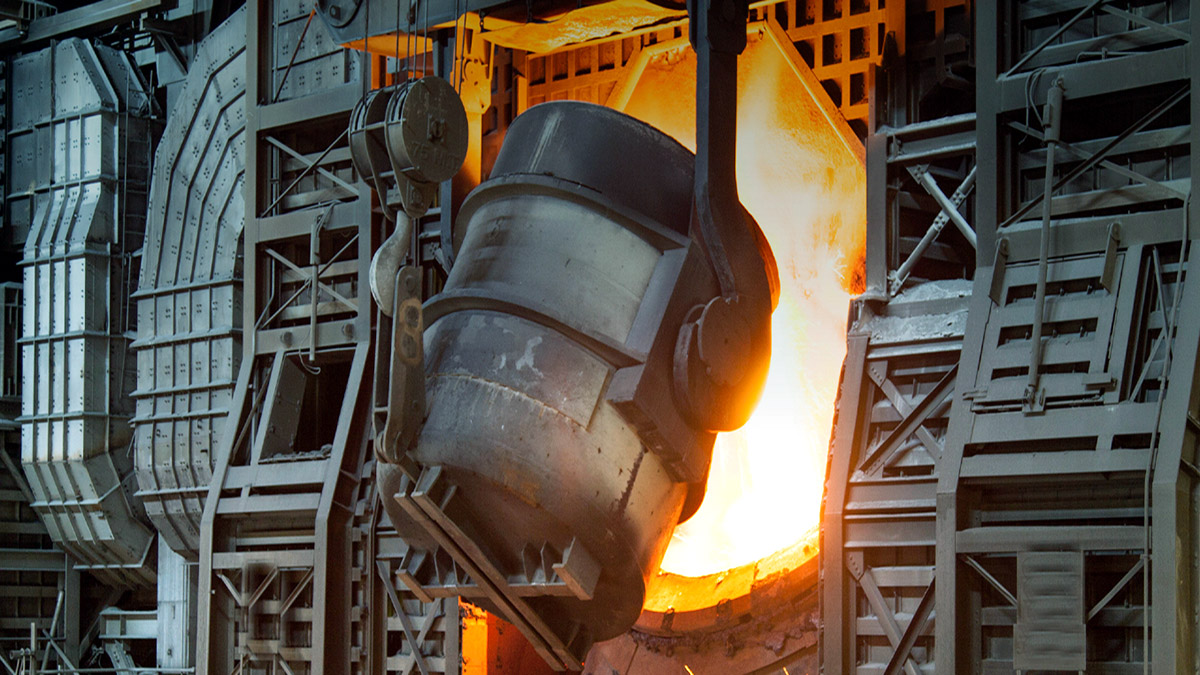In a significant stride toward realizing India’s commitment to decarbonising the steel sector, Union Minister of Steel and Civil Aviation, Jyotiraditya Scindia held a fruitful discussion on 28 September, 2023 with 5 out of the 13 task forces dedicated towards enabling the ecosystem for green steel in India. The meeting brought together key stakeholders, industry experts, and government officials, all deeply committed to India’s vision of achieving sustainability and decarbonisation in steel production. The meeting was attended by the Secretary of the Ministry of Steel, the Chairpersons of these Task Forces and other senior officials.
In the discussion chaired by the Union Minister of Steel, a roadmap was defined to tackle inevitable challenges through a multi-pronged approach, including renewable energy uptake, skill development, incentives, and potential pathways for decarbonisation. The Minister provided guidance and insights, which would be instrumental in shaping the final recommendations put forth by the task forces. He emphasized the need for tailored decarbonisation solutions as well as policy measures that consider the diverse landscape of the steel industry, encompassing both integrated steel plants and secondary facilities.
The Task Force on Finance led by Sunil Mehta, Chief Executive of the Indian Banks Association provided valuable insights into financing options for decarbonizing the Indian steel industry. Renewable Energy Transition Task Force, under the leadership of Aniruddha Kumar, a veteran of Ministry of Power and MNRE, examined the integration of renewable energy in the steel industry and proposed policy drivers to incentivise the adoption of renewable power and measures to attract industries to set up captive renewable power facilities.
Skill Development Task Force, led by Sunita Sanghi, a renowned public policy specialist and skill development expert, focused on identifying the skilling, upskilling and re-skilling of the manpower of the steel industry for ensuring the just transition. Their recommendations emphasized the need to create and empower educational institutions to meet the industry’s evolving skill demands, particularly in the secondary steel sector.
The Task Force on Energy Efficiency, spearheaded by Ashok Kumar Tripathy, an Independent Director of SAIL, gave recommendations for boosting energy efficiency solutions for both Integrated Steel Plants and Secondary Steel Industries. Process Transition Task Force, led by Dr Indranil Chattoraj, former director of the National Metallurgical Laboratory under CSIR, focussed on promoting the use of natural gas and syngas in Direct Reduced Iron plants, aiming to reduce the carbon emissions from these facilities by moving away from coal based feedstock.


